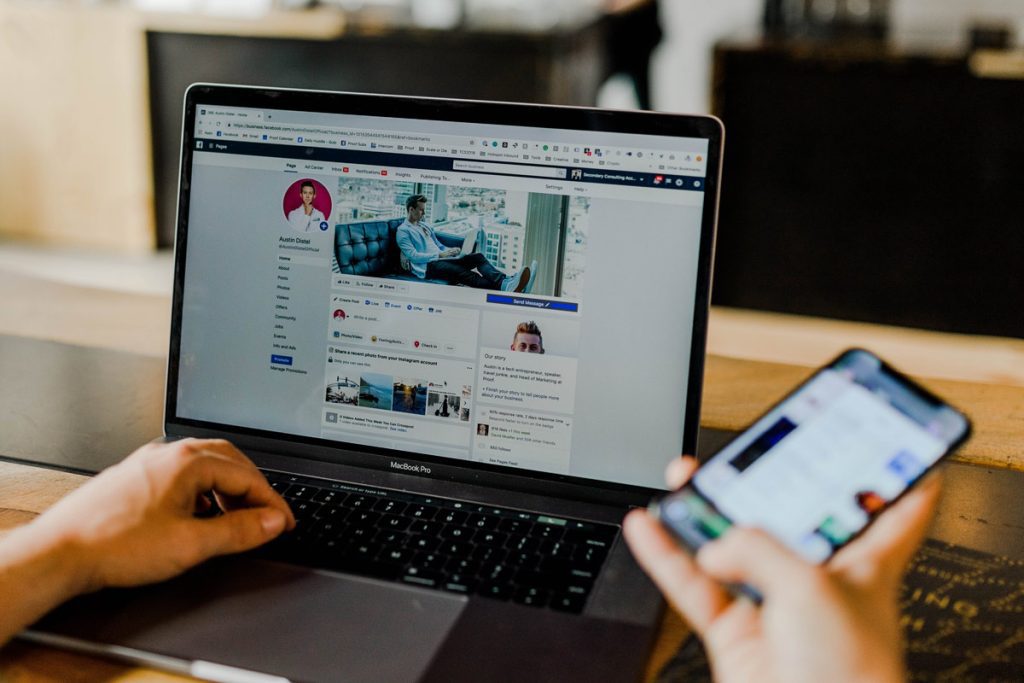Social media has helped us connect and communicate with thousands of people around the world. However, as our connections grow in number, an emptiness within our hearts emerges.
Many people around the globe are experiencing a feeling of loneliness, depression, and stress despite having thousands of friends online. A recent study found that reducing social media use to 30 minutes a day significantly reduced loneliness and depression.
Let’s try to understand the impact of social media on our mental health and how to approach these challenges.
1. The Illusion of Having Social Connection
- Our relationships in the virtual world often lack depth and fail to have meaningful connections. Social media creates an illusion of having thousands of friends, but interaction and communication with them don’t provide much value to our lives.
- We like to compare our lives with online reels. In the reels, people explore new places, have dinner in expensive restaurants, and, most of all, they are having fun. Social media only shows the filtered version of people’s lives, not the true one. Yet, despite knowing the truth, we still compare and experience feelings of isolation and inadequacy.
2. The Danger of Online Validation
- We love to receive likes and comments on our social media, but we somehow relate these likes, comments, and shares to our self-worth. Therefore, we constantly upload content and seek validation from virtual friends we have never met. This can lead to addictive behavior and create depression and anxiety.
- Relying on others’ approval for our self-worth can harm our mental health.
- Self-worth comes from within, a sense of self-confidence that you are worthy of happiness and have the capacity for success and love.
3. Fear of Missing Out (FOMO)
- People always share the exciting experiences they are having in their lives. This can create a fear of missing out (FOMO).
- Seeing friends, influencers, or peer group members participating in events, activities, or trends creates a strong desire to join them. We may feel left out if we cannot join, generating stress and anxiety.
- 56% of people fear missing out on events, news, and status updates if they are away from social networks.
4. Online Harassment (Cyberbullying)
- Social media can be a platform for online harassment. If you have thousands of friends online, some of them may have different mindsets, beliefs, and personalities.
- You may face negative comments, personal attacks, or even receive threats to your life.
People may become jealous of your success, upload content that hurts your feelings, break promises, or hide behind the veil of anonymity to harass and cyber-bully you. - According to reports, kids on YouTube are the most likely to be cyberbullied (79%), followed by Snapchat (69%), TikTok (64%), and Facebook (49%).
- These experiences can significantly affect mental health and lead to stress, depression, and anxiety.
5. Reduced Offline Experiences
- A recent study of 1,000 parents found that 57% of children aged 5-13 spend most of their recreational time online.
- Face-to-face interactions are essential for developing meaningful relations and a deeper understanding of emotions.
- Spending more time on social media and less offline leads to increased loneliness and stress.
5 Strategies for Healthy Social Media Relationships
1. Social Media Detox
If you are unhappy and depressed from social media, you should consider going on social media detox occasionally. Social media detox is a decision to stop using all social media platforms for a while. It may be challenging at first, but it has many benefits:
- Enhanced Self-esteem.
- Improved productivity.
- Reduced anxiety and stress.
- Enhanced mood and emotional well-being.
- Increased focus.
- More enjoyment of the little things in life.
2. Reduce Screen Time on Social Media
Anything excessive, whether eating healthy food, working on your goals, or browsing social media, is bad for you. Limit your screen time and create a balance between offline and online activities. You can set reminders for yourself if you are using your phone too much.
3. Mindfulness practice
You can break bad habits with mindfulness practice. Mindfulness teaches us to be present in the moment. It helps us increase our self-awareness, focus, and concentration. Most of us don’t even notice how much time we spend on social media daily because it is a habit. Once you include mindfulness in your daily life, you can easily notice the pattern of your habits and can take steps against it.
4. Positive Content
You can use social media for personal development and happiness. You can follow or curate feeds for more positive and uplifting content. You can connect with productive, supporting communities and role models that focus on personal growth, success, self-care, and mental health.
5. Professional Support
If the stress and depression become severe due to social media use, it is crucial to seek help from a professional. A counselor or therapist can understand your state of mental health and provide personalized strategies to overcome these challenges. You can seek online counseling as well. Some of the well-known online counseling sites are:
- https://www.betterhelp.com/
- https://www.talkspace.com/online-therapy/
- https://www.online-therapy.com/
Conclusion
While social media has its negative side, we can use it mindfully to improve ourselves daily.
By balancing our online and offline presence, we can positively affect our mental health.
We should know that having 10,000 online friends doesn’t define who we are; it is the quality of relationships and how we take care of ourselves that define us.

About the Author: Hi, I am Ahbab Ahmed. I am on a journey to transform our lives with logic and discipline. I write self-help and inspirational articles on my blog Basicideaz.com , and I hope it can make a difference in someone’s life.
Photo by Austin Distel on Unsplash
The opinions and views expressed in any guest blog post do not necessarily reflect those of www.rtor.org or its sponsor, Laurel House, Inc. The author and www.rtor.org have no affiliations with any products or services mentioned in the article or linked to therein. Guest Authors may have affiliations to products mentioned or linked to in their author bios.
Recommended for You
- Veterans and Addiction Recovery: How Families Can Support Their Service Member’s Healing Journey - July 14, 2025
- Trauma-Aware Yoga: A Gentle Path to Healing and Recovery - July 10, 2025
- Why Eating Disorders in Men Are Often Missed - July 3, 2025





